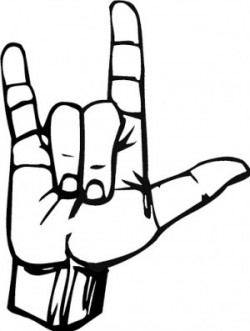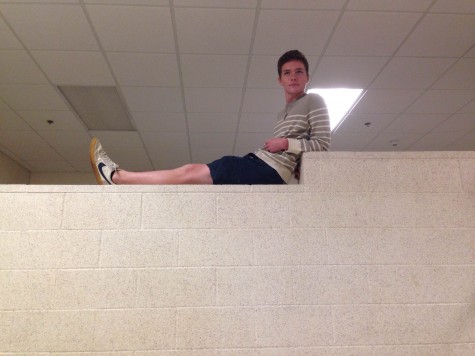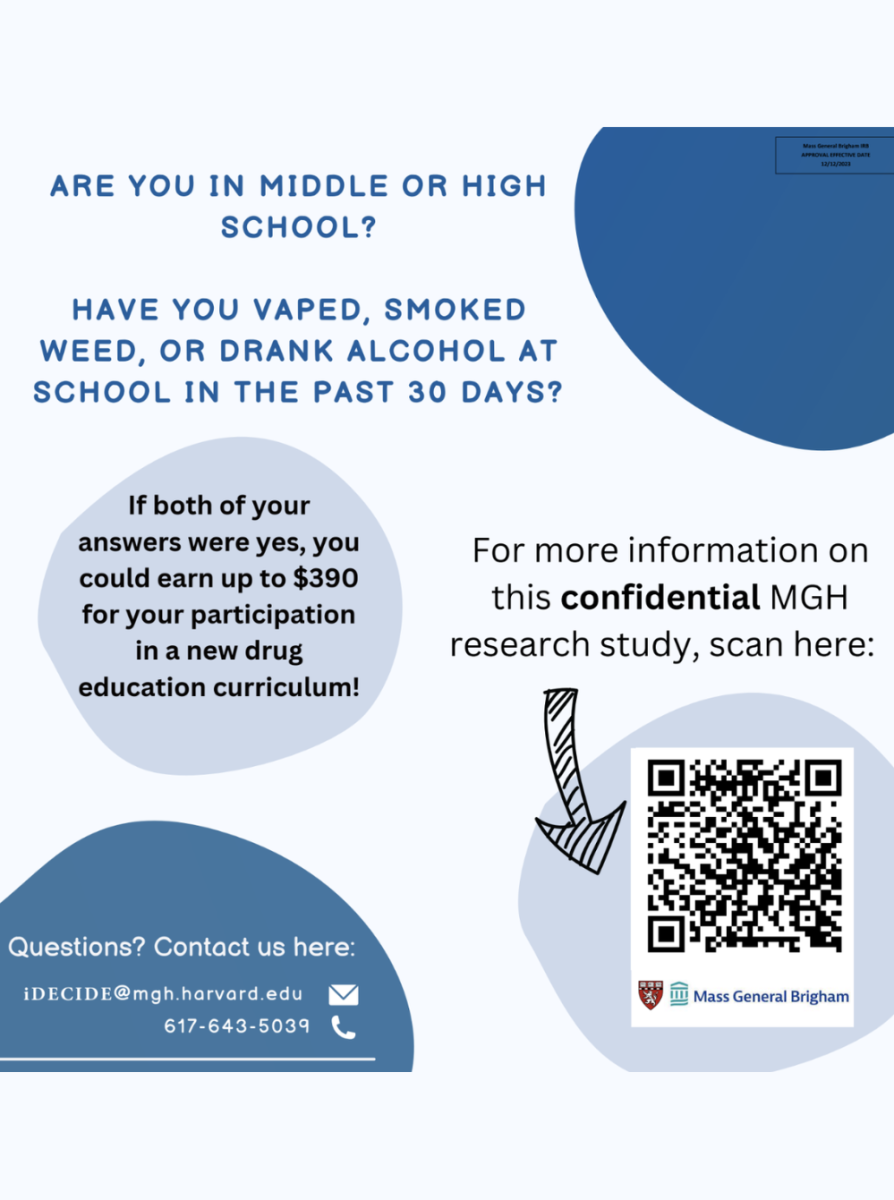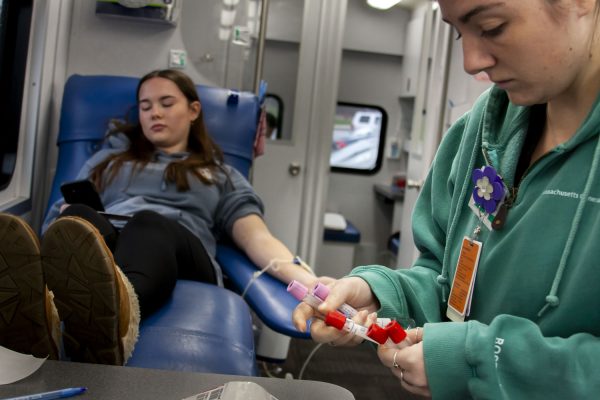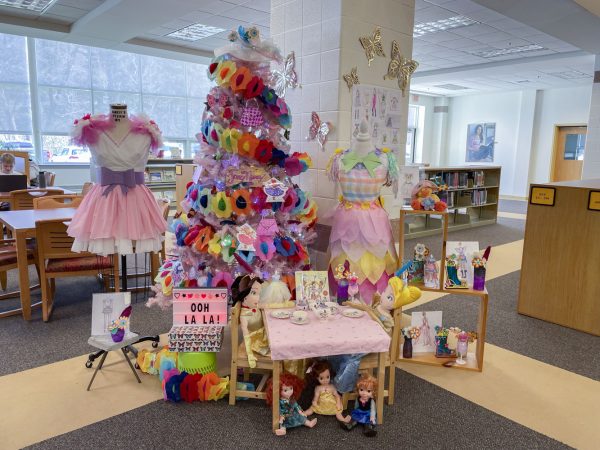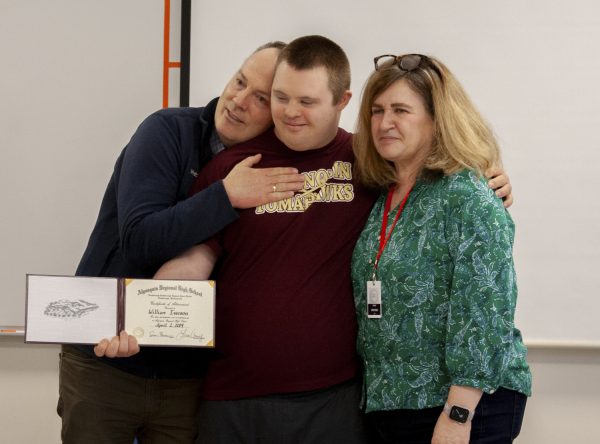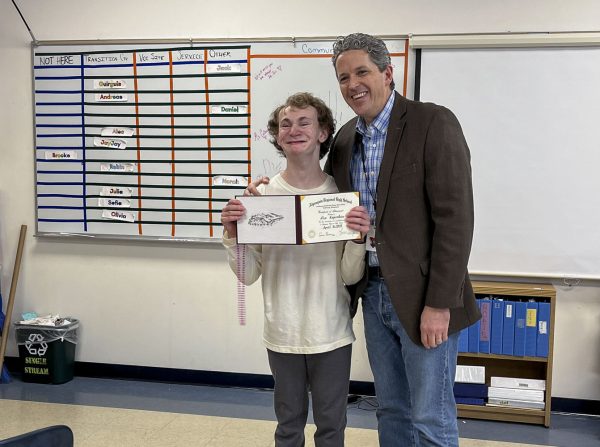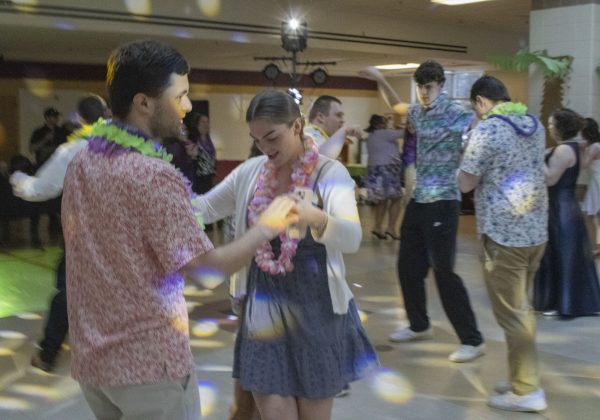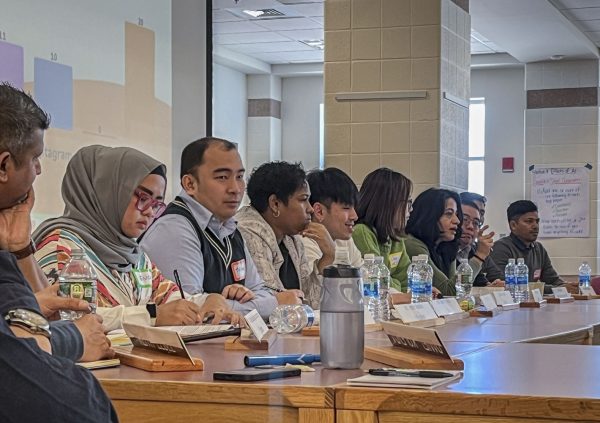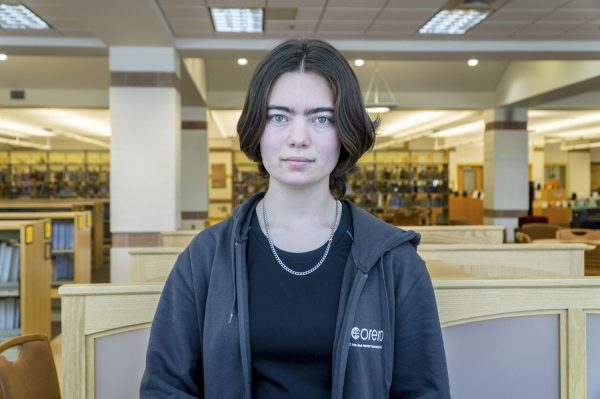Day for Change promotes freshman unity
May 11, 2015
The Guidance Department emphasized the importance of compassion and understanding when they unveiled the Day for Change program to 100 freshmen on May 1.
Day for Change is a program focused on making high school environments more cohesive by hosting various bonding activities with students. Guidance counselors Andrea Hotchkin and Jason Lessard brought the program to Algonquin after seeing it in action in West Boylston.
“It’s not just about breaking down barriers between students, but between faculty and students,” Hotchkin said.
The program is based off a national program called Challenge Day, but since Challenge Day costs over $15,000 for a single day of activity, Day for Change offers a less expensive alternative that highlights the same values as Challenge Day. After over a year of planning, Hotchkin and Lessard were anxious to see their hard work pay off.
“We were nervous; we essentially asked everyone to completely trust us,” Lessard said. “But because of [their trust] I think it ended up working really well.”
During Day for Change, freshmen were grouped into different “families,” groups of four students, one peer mentor, and one faculty member. The activities were carried out mostly within families, but were also done as a large group.
“We stress confidentiality; it’s very important that what’s said stays there,” Hotchkin said.
Activities ranged from simple, silly games to more serious and emotional projects. One activity, called Cross the Line, involved a teacher or mentor issuing a statement, and students would cross a line if the statement was valid to them. Statements began simple, such as “cross the line if you have a sibling,” and got more sincere as the activity progressed, such as “cross the line if you have ever been depressed.” After students crossed the line, their peers would raise their hands up gesturing “I love you” in sign language to show them they are not alone.
“The kids look around and they see ‘oh my gosh, these people also deal with this,’” Hotchkin said.
Feedback for the program was widely positive.
“I think it went pretty well,” freshman Alex Chen said. “At the beginning, some stuff was on a not-so-serious side, but then later on it got more serious, more emotional, and overall left a lasting impact on the student body.”
Along with the freshmen involved, many peer mentors and teachers enjoyed the program. One teacher mentioned confidentially that it was one of the most moving experiences she ever had.
“We broke down a lot of barriers, I think everyone got something out of it,” senior Megan Walsh said. “It felt good to help facilitate a change and unite the freshman class for the better.”
At the end of the program, everyone participated in an activity called Time for Healing. Time for Healing brought a microphone to the front of the gym and allowed students, faculty, and peer mentors to come to the microphone to apologize to one another.
“We had students apologizing to each other, faculty apologizing to each other, faculty apologizing to students, and students apologizing to faculty,” Hotchkin said.
After the program’s success, Hotchkin and Lessard hope to be able to conduct the program every year with freshmen.
“Ideally, we’d like to do this with the whole freshman class,” Hotchkin said.
Hotchkin believes that caring, compassion, and understanding were successfully conveyed to participants. Hotchkin and Lessard hope that the program’s message will resonate with those who participated and that they will spread the message of compassion as well.
“It doesn’t matter gender, it doesn’t matter age, it doesn’t matter religion,” Lessard said. “We are much more alike than we are different.”

